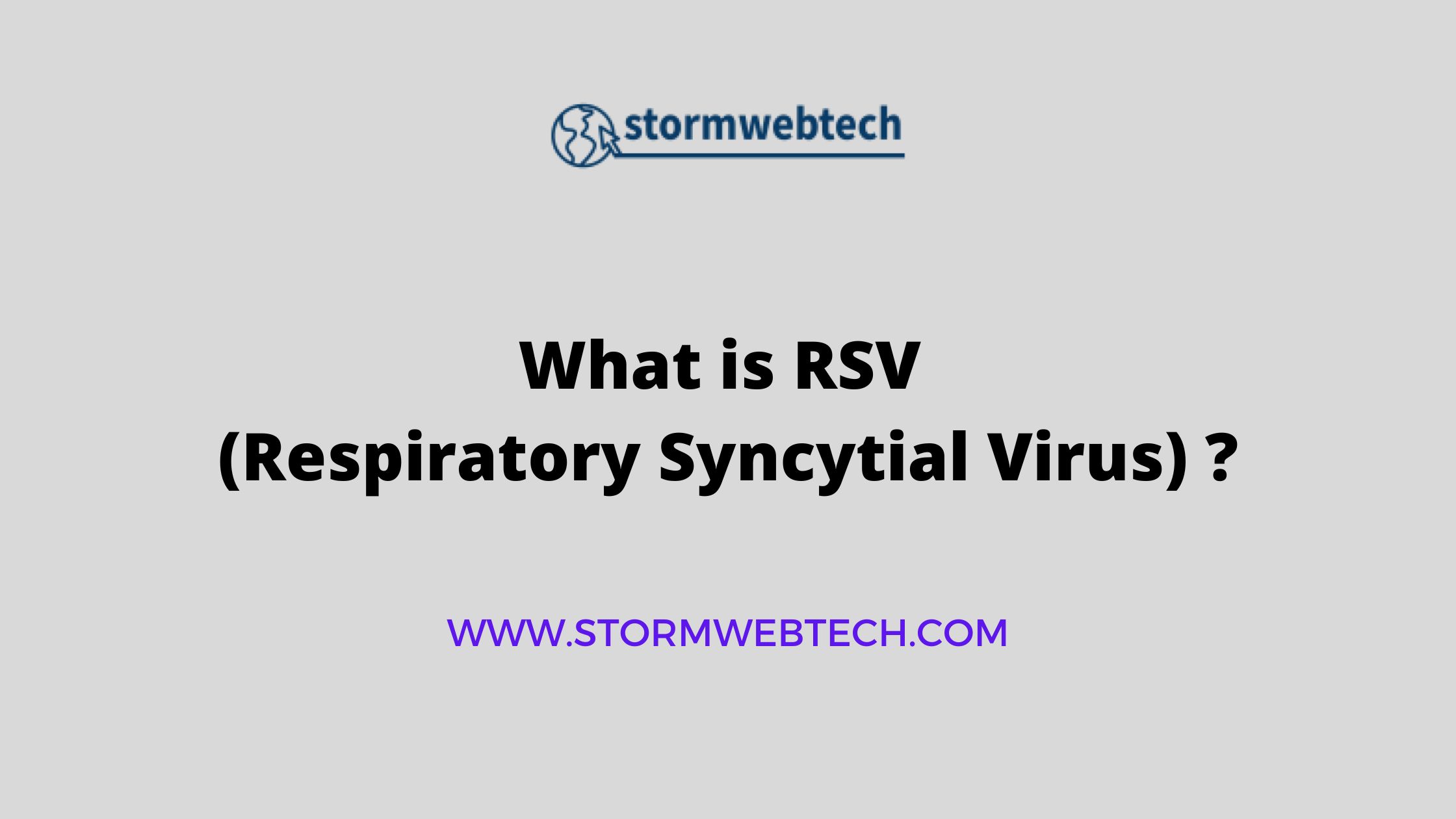Respiratory Syncytial Virus (RSV) is a highly contagious virus that affects the respiratory system. It is a leading cause of lower respiratory tract infections in infants and young children, as well as elderly adults, and individuals with weakened immune systems. RSV is a seasonal virus that typically occurs from late fall to early spring, with peaks in December and January in the United States. In this blog post, we will explore what is RSV, how is RSV caused, and the symptoms associated with this viral infection.
What is RSV (Respiratory Syncytial Virus) ?
Respiratory Syncytial Virus (RSV) is a member of the Paramyxoviridae family of viruses. It is a single-stranded RNA virus that can cause mild to severe respiratory illness. RSV is highly contagious, and it spreads easily through coughs and sneezes, as well as contact with contaminated surfaces.
RSV stands for Respiratory Syncytial Virus, which is a common viral infection that can cause respiratory infections in people of all ages. It is a contagious virus that spreads through direct contact with respiratory secretions or indirect contact with contaminated surfaces.
RSV is a seasonal virus that usually affects people in the winter months. Infants and young children, as well as older adults and people with weakened immune systems, are at a higher risk of developing severe RSV infections.
RSV primarily infects the respiratory tract, causing inflammation and damage to the airways. The virus can affect individuals of all ages, but it is most severe in infants, young children, and elderly adults.
How is RSV caused?
RSV is primarily spread through respiratory secretions, such as mucus, from infected individuals. The virus can also survive on surfaces for several hours, increasing the risk of transmission through contact with contaminated surfaces.
Once the virus enters the body, it attaches to the cells lining the airways and begins to replicate. The virus then triggers an immune response, leading to inflammation and damage to the airways. In severe cases, the virus can spread to the lungs, leading to pneumonia and respiratory failure.
Risk factors for RSV include being an infant, young child, or elderly adult, having a weakened immune system, and having underlying health conditions such as heart or lung disease.
Symptoms of RSV
The symptoms of RSV can vary depending on the age and overall health of the individual. In infants and young children, the symptoms may be more severe and can include -:
- Runny or stuffy nose
- Cough
- Sneezing
- Fever
- Difficulty breathing or rapid breathing
- Wheezing
- Loss of appetite
- Irritability or restlessness
- Fatigue or lethargy
In adults, the symptoms of RSV may be milder and resemble those of a common cold, including -:
- Runny or stuffy nose
- Cough
- Sore throat
- Headache
- Fever
- Fatigue or lethargy
In elderly adults and individuals with weakened immune systems, RSV can lead to more severe respiratory illness, such as pneumonia or bronchiolitis.
Diagnosis and Treatment of RSV
Diagnosis of RSV is typically made through a combination of a physical exam, medical history, and laboratory tests, such as a nasal swab or throat culture. Treatment for RSV typically involves supportive care to manage the symptoms, such as rest, hydration, and over-the-counter medications for fever and pain relief.
In more severe cases, hospitalization may be required for oxygen therapy or other supportive treatments. In some cases, antiviral medications may be prescribed, although these are typically reserved for individuals at high risk of complications, such as infants or individuals with weakened immune systems.
Prevention of RSV
Preventing the spread of RSV is essential to reduce the risk of infection, particularly in high-risk populations such as infants, young children, and elderly adults. The following strategies can help prevent the spread of RSV -:
- Wash hands frequently with soap and water, especially after contact with someone who is sick or after being in public places.
- Avoid close contact with individuals who are sick.
- Cover your mouth
In infants, RSV can cause bronchiolitis (inflammation of the small airways in the lungs) and pneumonia (infection of the lungs), which can be life-threatening. Older adults and people with weakened immune systems are also at risk of developing severe infections.
If you or someone you know is experiencing symptoms of RSV, it is important to seek medical attention, especially if the symptoms are severe or if the person is at a higher risk of complications.
Read More -:
